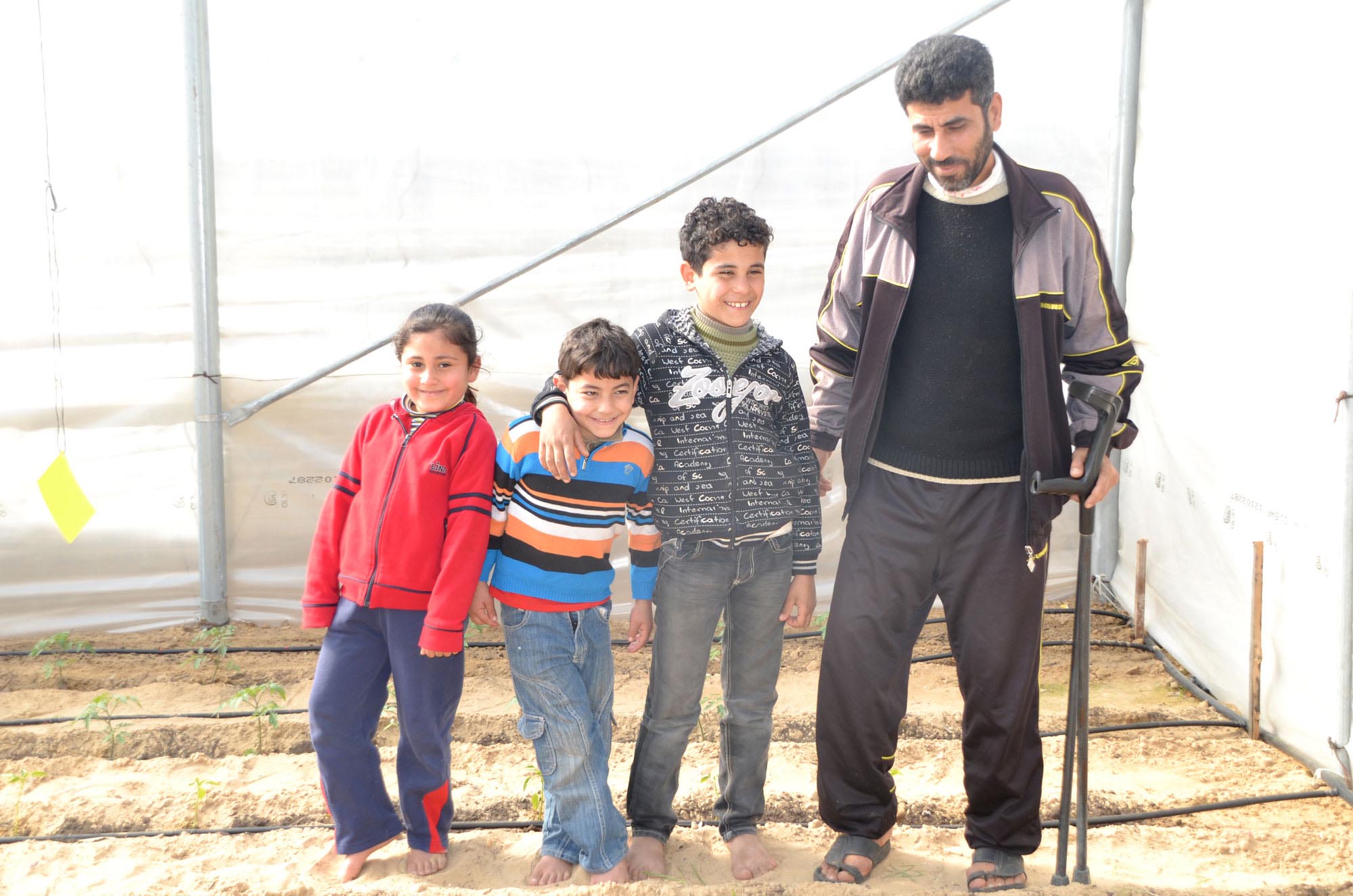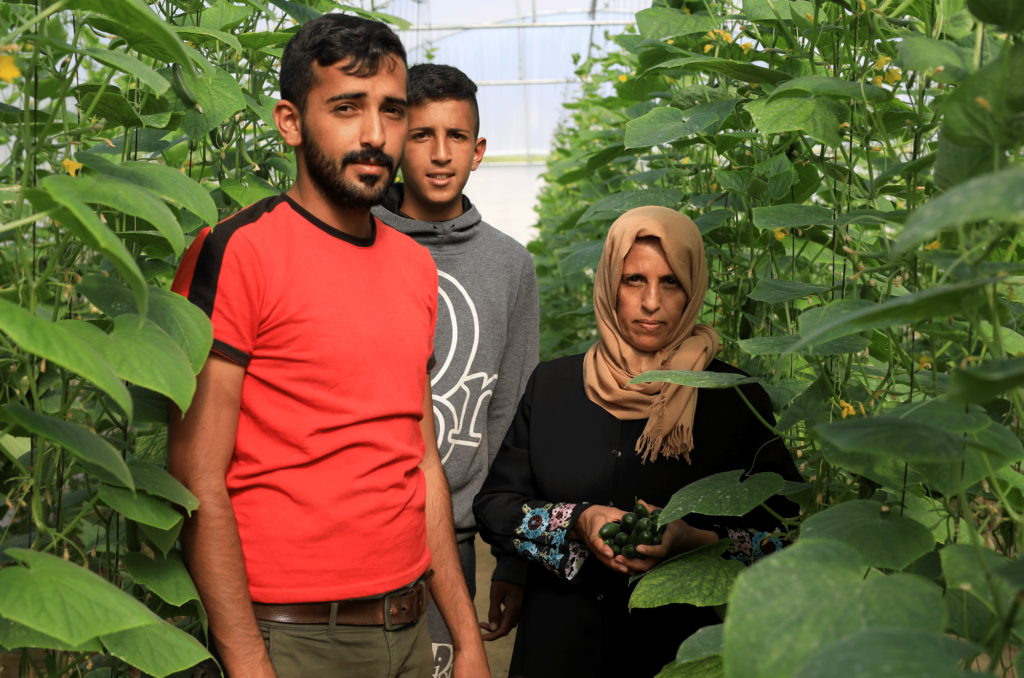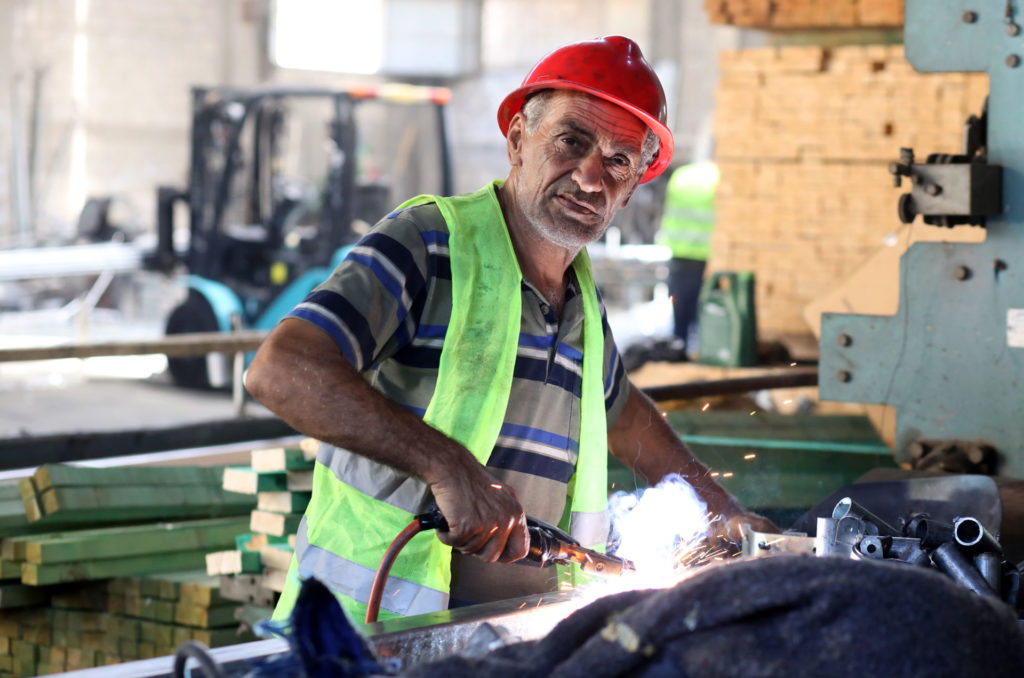Jan, 2013
Bassem Ferwana and his five children have been living in a makeshift plastic shelter for three years, ever since he was handicapped and lost his job.
There’s no heat inside the tent-like structure so the family huddles together around a small brazier to keep warm in the cold winter months.
Just outside, on a small patch of land, there’s a new and very welcome sight: Baasem’s new greenhouse that will provide healthy vegetables to feed his hungry children and a source of income for his family.
“The greenhouse was a huge relief to me and to my family,” said Baasem. “The produce will be more than enough for my family and I’m going to sell the rest of the crops in the market.”
Bassem’s family is not unique.
A recent study shows that four out of ten Gazans live in poverty and 60% of the population depends on food aid.
What kind of food aid? Anera aims for sustainable development aid through its home garden project that responds to pressing humanitarian needs. First, Anera identifies beneficiaries based on family size with children under the age of five, farming skills, marginalization, income. Each family that is selected for the project then receives a greenhouse, a water tank, seedlings, farming tools and compost.
Women-Headed Households Get Special Attention
Amena El Masri lives in southern Gaza near Khan Younis with her six children, and two grandchildren. She has a small piece of land in front of her house where she likes to sit and gaze at the lone guava tree that brings memories of a happier past. “Even if it is a small Guava tree, I used to feed my neighbors from it,” she said.
Amena learned about generosity from her father. “Giving even a little will bring goodness and blessings to our land.” Amena says her father’s words came true when she learned about her eligibility to receive a greenhouse from Anera. As soon as it was installed, she planted tomatoes, peppers, eggplants, onions and cauliflowers to feed her hungry family.
“This greenhouse will be a part of our family.”
The home garden project introduced Amena to “green” agriculture practices and more efficient ways to plant, water and compost. “I learned about plowing the land and avoiding pesticides,” she said.
Amena knows what she’ll do with her garden’s bounty. “I’ll never forget to feed my neighbors too.”




